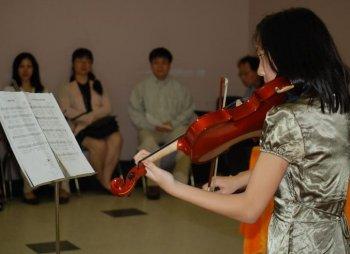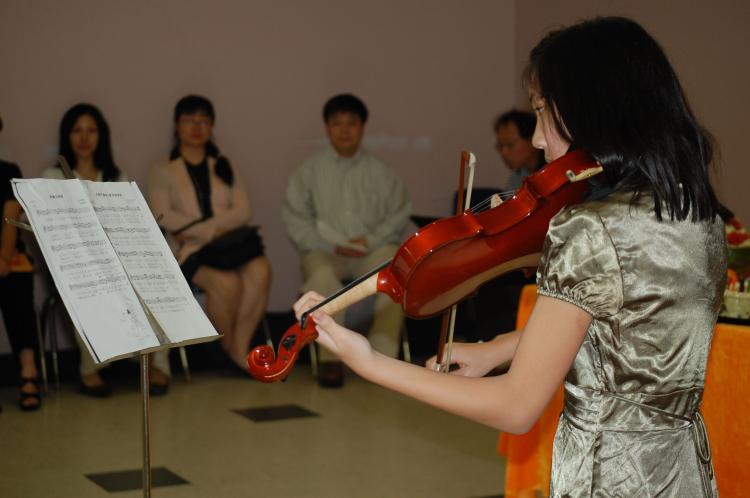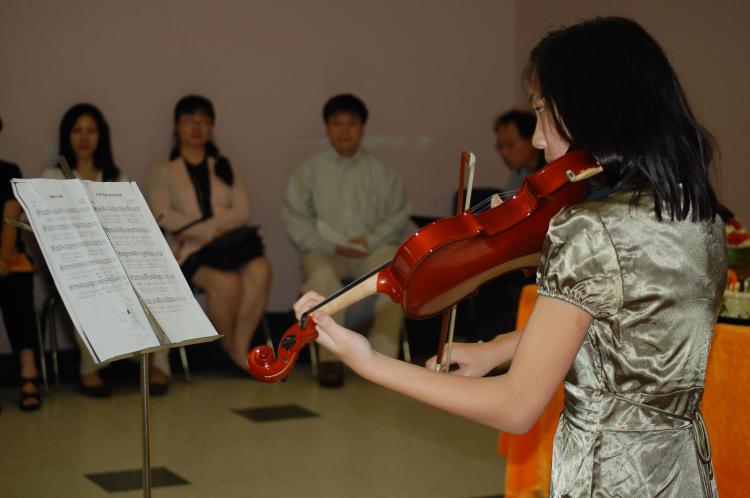Atlantans Mark World Falun Dafa Day
Falun Gong practitioners celebrated World Falun Dafa Day on May 13 with poetry, music, conversation and food at a Chinese cultural school.

Falun Gong practitioner Crystal Wang plays violin on World Falun Dafa Day in Atlanta. Mary Silver/The Epoch Times
|Updated:
Mary Silver writes columns, grows herbs, hikes, and admires the sky. She likes critters, and thinks the best part of being a journalist is learning new stuff all the time. She has a Masters from Emory University, serves on the board of the Georgia chapter of the Society of Professional Journalists, and belongs to the Association of Health Care Journalists.
Author’s Selected Articles






